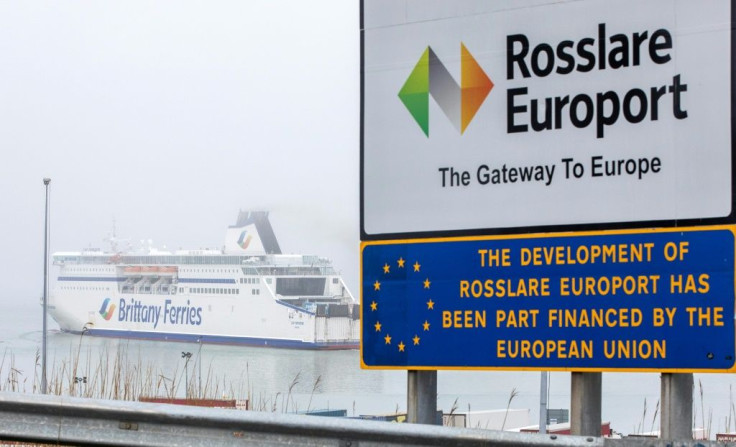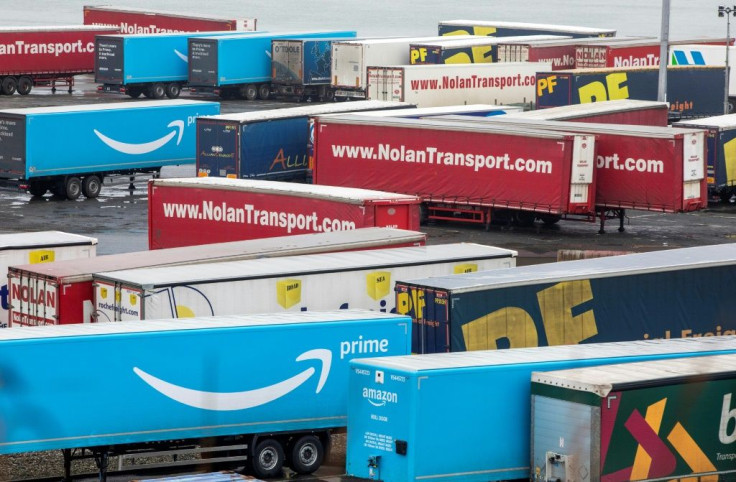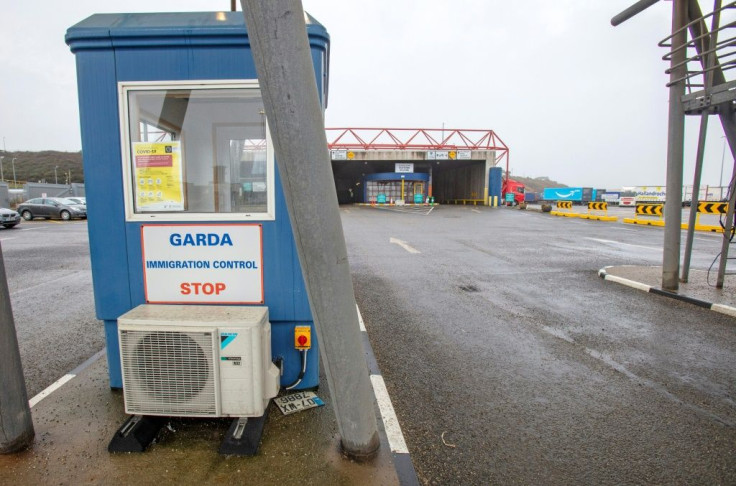After Brexit, Irish Port Becomes New Gateway To EU
The Irish port of Rosslare has seen a staggering increase in traffic since the Brexit transition period ended, as hauliers seek new routes bypassing Britain to link the Republic with the EU.
"Since the first of January, we've seen a 476-percent increase in freight to mainland Europe when compared to last year," port manager Glenn Carr told AFP.
"We've gone from three direct services a week to mainland Europe to now 15."
Jutting out of the morning fog, a giant ferry makes its landing from the French port of Dunkirk -- tracing a new route opened by Danish firm DFDS on January 2.

Soon afterwards, a ship from Cherbourg pulls alongside and lowers its ramp -- churning the slate-grey waters of the harbour on Ireland's southeast coast.
Meat trucks and tankers roll onto the dock. Drivers work together -- shouting in French -- to delicately reverse a flatbed packed with farm machinery.
Spanish hauliers wait in their cabs for the sailing to Bilbao.
On the sloping approach to the docks, a sign welcomes the steady stream of traffic to "Rosslare Europort: the gateway to Europe".

Britain left the EU in January 2020 after a seismic referendum in 2016 which voted to sever ties with the bloc. But the full effects were felt only with the end of the so-called "transition period" at the start of 2021.
With Britain now outside the customs union and the single market, new checks and paperwork are snarling traffic at the island nation's borders.
Delays and hurdles mean Irish hauliers are re-thinking the UK's "landbridge" route they have traditionally taken to EU markets.
Pre-Brexit, more than 150,000 trucks transported three million tonnes of freight to and from the EU in this way -- driving across Britain, crossing the Irish Sea and English Channel by ferry.

But in the early days of January, Dublin Port -- a key link in the "landbridge" -- experienced a lull in traffic and some sailings were cancelled.
In Rosslare -- the second busiest freight hub in Ireland -- there are signs logistics firms may be charting a new course to Europe: the one with least resistance.
"When you look at the end-to-end delivery of a trailer to the market, what we're seeing and what we're being told now is that it's not much different from the landbridge," said Carr.
"However, the big benefits are, you've no paperwork, your drivers are well rested, you're saving on fuel."
Among the forest of lorry trailers parked on Rosslare's docks, one colour stands out -- the canary blue of Amazon Prime trailers.
Dozens are dotted throughout the port and "tugmasters" -- squat, truck-like vehicles used to load unaccompanied freight -- shunt them to and fro at pace.
Online shoppers in Ireland -- a nation of just five million -- often rely on British sites serving larger UK markets to fulfil their orders.
However, since January 1, amazon.co.uk has imposed steep "import fees" on some items -- to cover "border taxes, customs duties and fees levied in the country of importation".
Reports earlier this week suggested people in the British province of Northern Ireland will also see their menu of Amazon products shrink as the site de-lists products due to Brexit customs rules.
But Irish customers can avoid fees and disruption by shifting their allegiances to Amazon proxies in EU markets -- amazon.fr, amazon.es and amazon.de.
Already there are signs that the habits of retailers and shoppers alike have changed in the post-Brexit landscape.
"A lot of the major retailers in Ireland are now bringing their products for their shelves directly in from mainland Europe now," explained Carr.
"We're seeing big customers, the likes of Amazon, now bringing in a lot of freight on a daily basis."
© Copyright AFP 2024. All rights reserved.




















